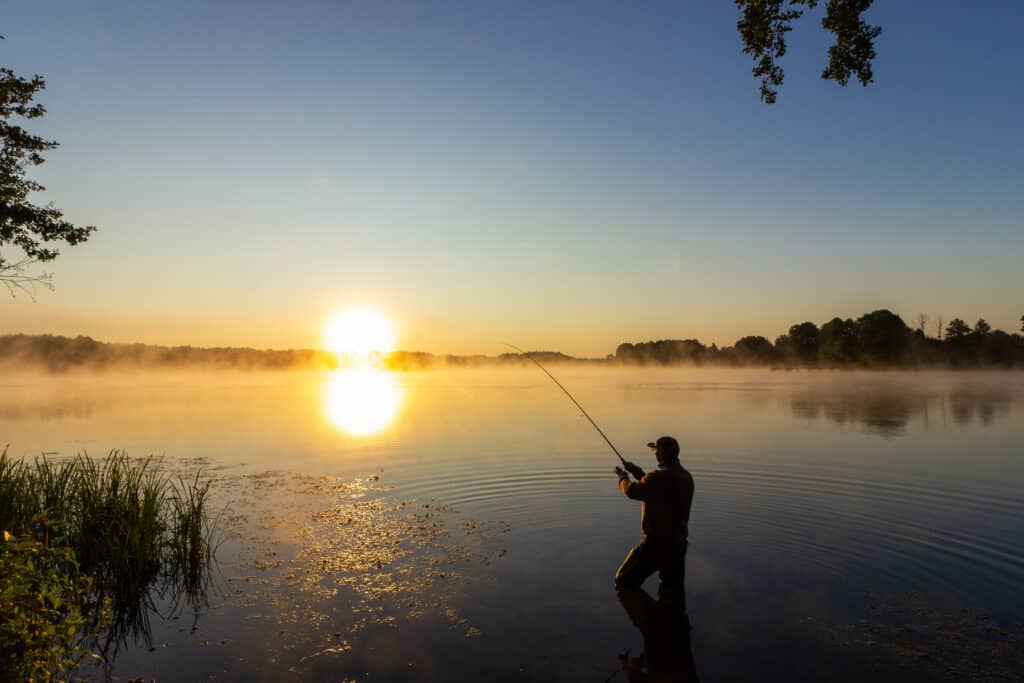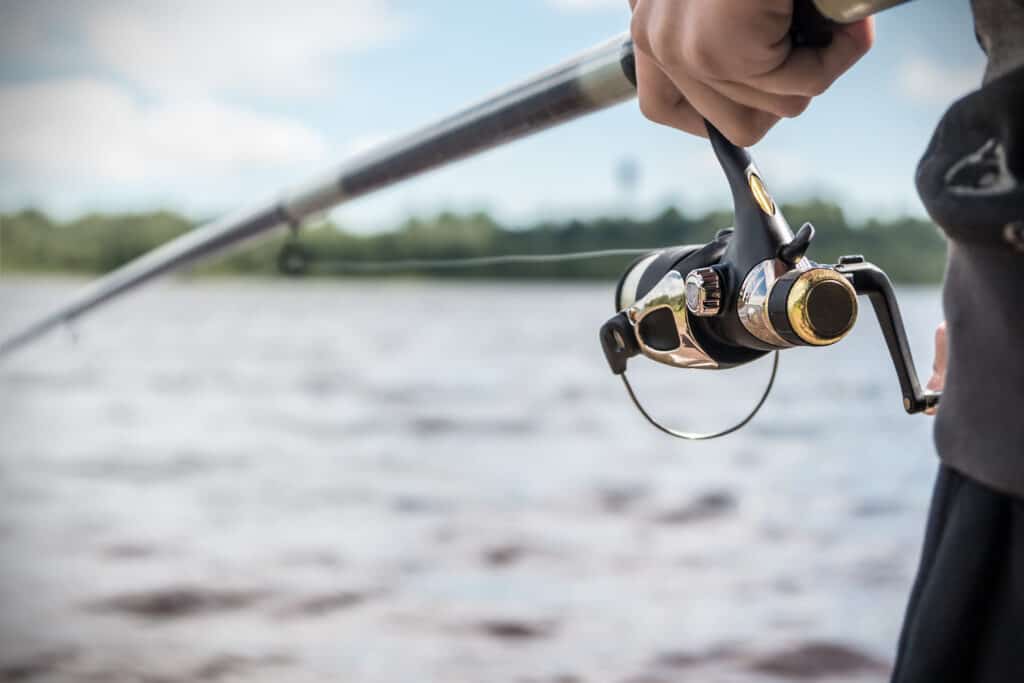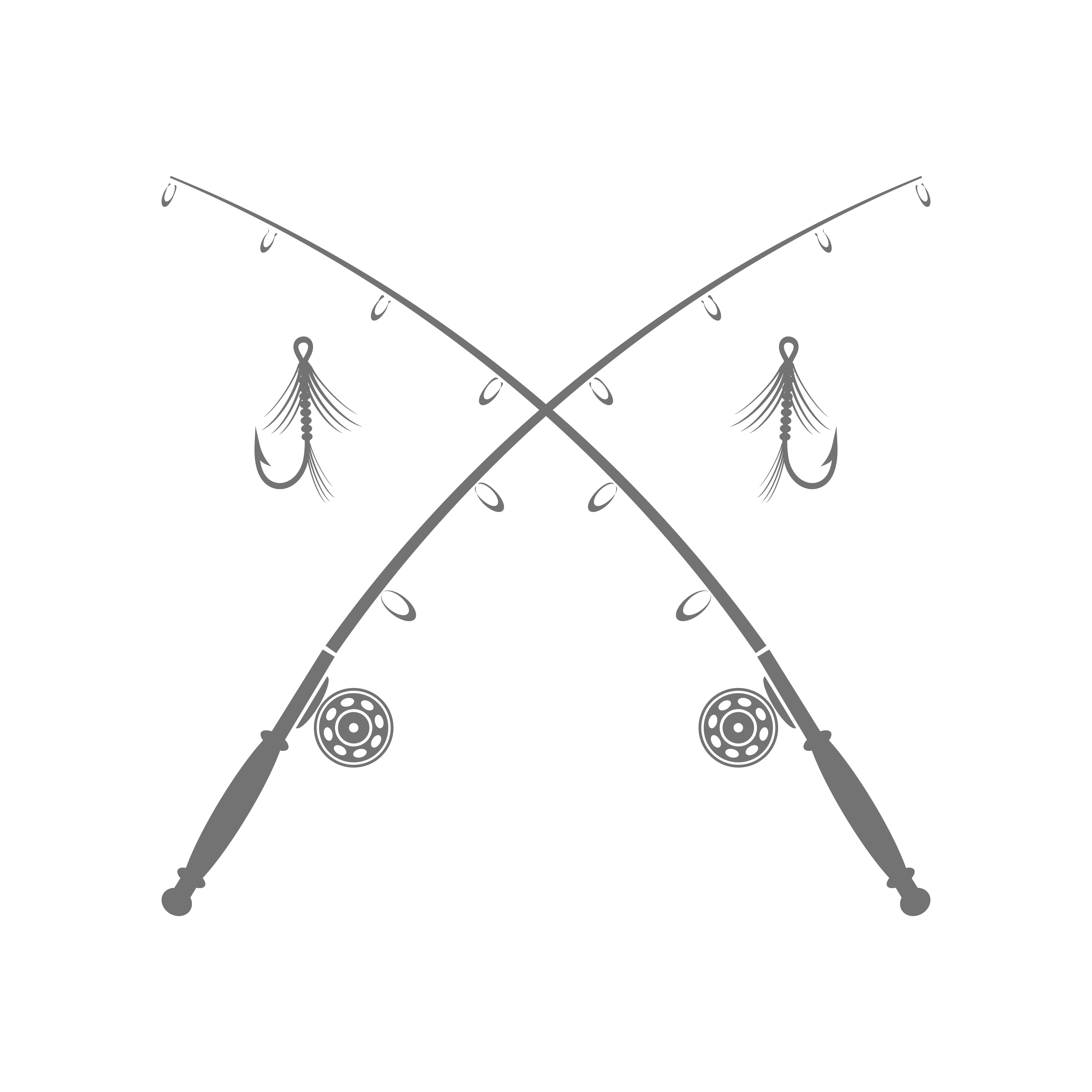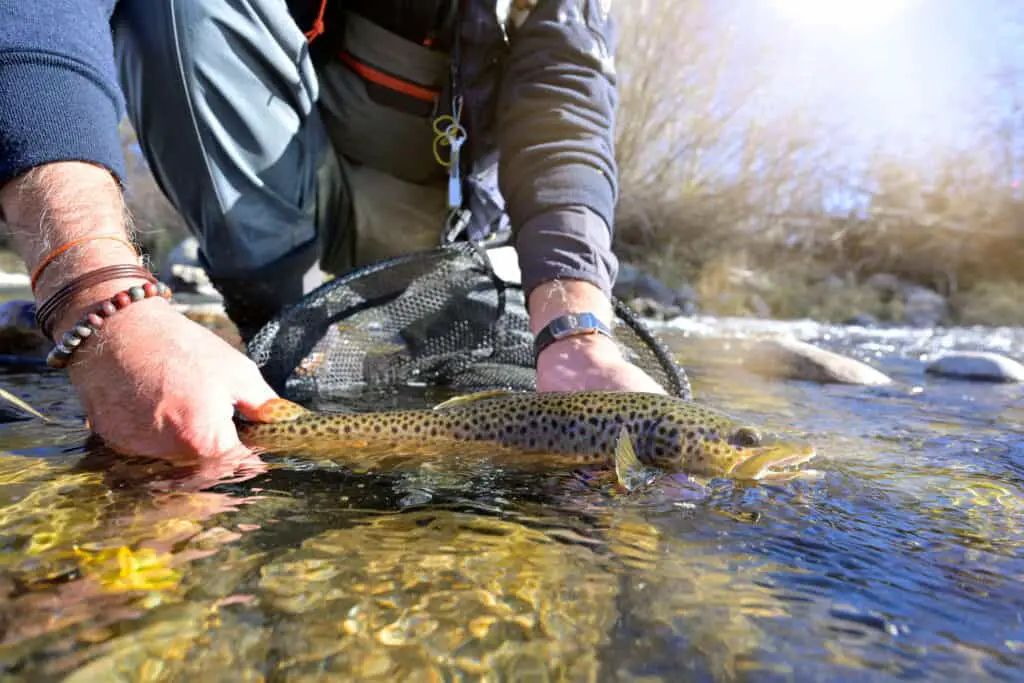For many people, fishing is not only a hobby and a source of food but also a lifestyle. Fishing can be a relaxing activity and a great way to spend a calm summer day. For those looking to level up their fishing game, how can someone increase their fishing abilities and become a better fisherman?
To improve fishing skills, a fisherman can get tips and tricks from a professional and complete personal research on specific fish and areas being fished. Fishermen can also join a local fishing community and purchase better fishing gear to become better fishermen.
What is the best way to complete each of these tips to improve fishing? Continue reading to learn some of the best ways to become a better fisherman.
Get Tips From a Professional
One of the best ways to improve in almost anything is by getting tips from professionals. In fishing, it is no different. Many people have spent years of their lives fishing and have truly learned the art of fishing. Advice and tips from a professional could change how someone is fishing for the better. There are a couple of different ways someone could go about receiving professional or expert advice.
One of the easiest ways to get advice from a professional is by finding how they are sharing their advice with the world. Many people have written books sharing their tips, tricks, and experiences. Today, it is becoming more popular for people to share their experiences through other sources of media, such as blogs like this one, YouTube channels, social media accounts, podcasts, and audiobooks.
The benefit of finding professional tips from media sources is the accessibility it offers users. Users can view and learn more professional tips at their own convenience. Podcasts and audiobooks are particularly accessible for those who travel long distances or who like to listen to something while working or exercising.
Along with the accessibility this option offers, another benefit is the abundance of material available on the internet. Someone could be learning from one fisherman through social media and another through a podcast. The internet truly is an amazing source to increase knowledge to change a fishing hobby into more of a professional experience.
There are also many different fishing forums where professionals and amateurs alike share their tips, tricks, and experience fishing. These forums are very helpful because they can answer specific questions someone might have by posting a question in the forum. Some of the more popular forums for fishing include:
Aside from receiving professional tips from media, there is another way to receive first-hand and personalized tips from an expert: planning a fishing trip with a professional. This is something that is becoming more popular in our modern world. This allows the amateur to learn directly from a professional and receive tips and tricks for their specific fishing experience. Fishing with a professional is a great opportunity to improve personal fishing skills and become a better fisherman.
There are several different companies and specific fishermen who offer these types of services. The most important thing to keep in mind is finding the right fisherman within your budget. Depending on where you fish, the level of expertise the fisherman is at, and the duration of the trip, the cost will vary. Click the links below to be directed to some websites to plan a fishing trip with a professional.
Do Personal Research

As a person is attempting to improve the level they fish at, he or she needs to complete research on their own. This allows them to be prepared for fishing specifics they may be unaware of before doing research. Being prepared for the specific area and types of fish improves the fisherman's ability to properly and successfully fish.
One of the best specifics for a fisherman to research includes the best time to fish. This not only includes the best time of day for a fisherman to go out on the lake or ocean but also the best time of year. Depending on the climate and the type of fish a fisherman is attempting to target, there are better times of the year to fish for them. Properly understanding the timing for the area and the fish themselves allows the fisherman to properly use their time for the most successful fishing trips.
Along with timing, a fisherman needs to know the best kind of bait to use for specific fish. Different fish prefer different types of bait. Knowing the fish's preferred bait can increase the quality of fishing trips for the fisherman.
Join a Local Fishing Community
Similar to the fishing forums online, there are fishing communities where interested individuals get together to discuss fishing and their own personal tips and tricks they have found through experience. For someone who is wanting to increase their fishing abilities, it is a great idea to join a local fishing community.
Through this community, a fisherman can make lifelong fishing friends who share the same interests and motivation towards the same goal. Fishing communities also offer more benefits than fishing forums in the sense of having so many people all available and willing to share experiences and answer questions with one another. This is a great place for amateur fishermen to go to learn more about the fishing world.
Buy Proper Equipment

Before beginning a fishing trip or a new fishing adventure, it is important to ensure proper gear and bait have been purchased. Proper equipment includes protective gear from weather or fishing tools, proper fishing gear, and the correct bait for the fish. This goes along with the “Personal Research” to find the proper bait and best fishing gear and equipment for the specific fish being fished. It will be difficult to succeed as a fisherman without proper equipment. This is a critical step for amateurs and professionals alike.
Reel and Rod Maintenance
Buying proper equipment is not enough, however. You will also need to take expert care of that equipment to ensure it lasts you for as long as it ought to. For the best and most effective use of your fishing gear, you will need to clean it and replace any parts necessary as the situation merits. Here are a few helpful tips!
Reel
Firstly, you have to take expert care of your reel, especially if you favor saltwater fishing over freshwater fishing. Saltwater can be particularly corrosive to a fishing reel/rod and will leave salty residue all over your gear. If this residue is not cleaned off as soon as possible, your reel will cease to work properly. You can usually tell if there's salt, sand, dirt, or something else stuck in the reel because it will grind when you spin the handle.
You will have to dismantle your reel to clean it. For freshwater reels, this should be about every five or so uses. If you have a saltwater reel, you will need to clean it after every single use. This will be a fairly meticulous process because there are quite a few mechanisms that will need to be taken apart. For those of you who are nervous about taking the reel apart, it is recommended that you use masking tape or something similar to label each of the parts. This will make it easier to put the reel back together in order.
While it's apart, take the time to scrub each piece thoroughly. If you are interested in adding a layer of protection against saltwater corrosion, you can use Pledge which will provide the reel with a barrier against salty residue. You can scrub the reel pieces with an old toothbrush or a small scrub brush.
Once you have thoroughly scrubbed everything, make certain you dry it off as well as you can. If it stays wet, the salt won't get to it but the rust will! Dry everything off and start putting the reel back together. Next, you need to lubricate all the moving parts and mechanisms with oil or grease of some kind (WD-40 is always a safe choice!). Lubrication is a necessary part of maintenance and it will keep the reel working smoothly.
Rod
Taking care of your rod is equally important. First of all, you will need to pay close attention to the rod guides. These are the little rings on the rod that keep the line from tangling up and breaking. Inspect the guides closely with a magnifying glass if necessary. This will help you to see any rust or gunk that you need to clean off. Slide a cotton ball through the guides to remove any sort of dirt or grime.
If the cotton catches and tears on the guide, that means there is a sand nick in the guide. One of these isn't a huge deal, but if you allow more and more nicks to develop, it will not allow the line to function as it ought to. When you start to notice nicks you can try to get rid of them by using fine sandpaper. If there are too many nicks in the guide, you may not be able to get rid of them with sandpaper and you'll have to replace them as soon as possible.
Don't allow your rod to get too dirty because it will either break or start to develop rust. After every use (or every five uses if you have a freshwater one) give the rod a good wipe down with vinegar and lukewarm water and a soft cloth. You can also use a mild detergent if that's what you have available to you.

If your rod is soiled and caked with grime, you may need to use a soft-bristled brush or toothbrush to scrub it away. Just as with the reel, you will need to pay extra attention to the cleaning if you have been fishing in saltwater. The salty residue will corrode the rod which might be even more delicate than the reel.
The joints or ferrules of your rod will need attention as well. In addition to cleaning them thoroughly, you may want to take the time to rub them down with a little paraffin or candle wax. This will prevent the joints from suffering any unnecessary friction while in use. It may also behoove you to wear gloves while you fish if you have a rod with a cork handle. Oils in your skin will quickly break down a cork handle and that means you'll have to replace it more often.
Storage
Finally, there is the matter of simply taking care of where you put your rod and how you hold it. The fishing rod was meant to be flexible and capable of withstanding some rough fishing conditions. However, it remains fairly delicate outside of the sport of fishing. Be careful not to knock your fishing rod around when using it. You will develop a few dents and scrapes in the rod, and if that gets out of control you may even snap the rod. Handle with care!
Where you store your rod makes a world of difference in how long it lasts. As mentioned before, fishing rods can snap easily if you don't properly care for them. The best place to store a fishing rod is on a horizontally or vertically mounted rack. You can also store it in a closet as long as it remains secure.
The main thing is not to let the rod rest in a place where it will crack or even bend. If it is left in an unsupported position for too long, you may find yourself with a rod that has suffered too much curvature. A curved/bowed rod will not be a good rod to use for fishing.
There are rod tubes that you can store your fishing rod in as well, but this is actually not recommended. Tubes can trap moisture inside which will, in turn, damage your rod over time. Keep the rod on a rack or in a closet away from dirt, salt, and anything else that could corrode it. Doing so will keep your rod in good shape for years to come.
Recent Posts
Fat Cow Jig Strips: The Ultimate Bucktail Jig Upgrade for Surf Fishing
As discussed in my previous article, "Surf Fishing with Bucktail Jigs: Ultimate Guide for Beach Anglers," bucktail jigs are a staple in any surf angler's tackle box, offering a versatile way to catch...
In my previous article, "Surf Fishing with Bucktail Jigs: Ultimate Guide for Beach Anglers," I introduced you to the bucktail jig and discussed how versatile of a lure it is for catching a wide range...

